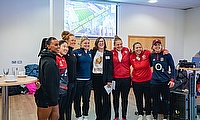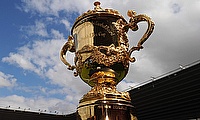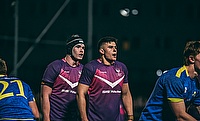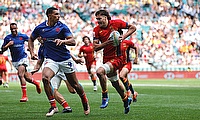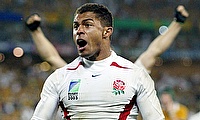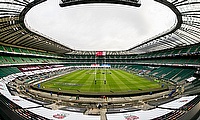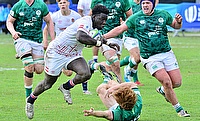Rugby World Cup: Runners and Riders
With the 2015 Rugby World Cup now less than a year away, Talking Rugby Union is excited to kick off its coverage of rugby’s showpiece event with an early look at the major runners and riders in the competition.
Most of the northern hemisphere nations have between 12 and 14 tests left before their RWC campaigns get under way, whilst the southern hemisphere nations, at the conclusion of The Rugby Championship this weekend, will have just eight or nine games to make the final finishing touches to their squads.
It is too late for wholesale changes either on or off the pitch, and cementing combinations and developing chemistry now takes priority. If a team does not currently have the quality in their squad to win the RWC, chances are that won’t change over the next 11 months.
Understandably, reigning RWC holders and number one ranked side in the world, New Zealand, come in as heavy favourites for the tournament. The All Blacks, who were on a 22-match unbeaten streak which stretches back to December 2012, until South Africa on the 4th October. They have a relatively settled squad that is packed with game-breaking talent. Their depth in the half-backs and back row is enviable to all, and could be a decisive factor in the packed schedule and gruelling workload of a RWC.
Barring injury, the upcoming RWC will be the swansong of two legends of the game, Richie McCaw and Dan Carter, but whether or not it will be fairytale ending remains to be seen. They certainly have the supporting cast to make it so, with a feared engine room boasting the prodigious talents of Sam Whitelock and Brodie Retallick, whilst the midfield duo of Ma’a Nonu and Conrad Smith can still unlock the most resolute of defences, despite both players being in the twilight of their careers. Throw into the mix truly world class players like Kieran Read, Julian Savea and Ben Smith, and you can see why they will be the team to beat next year.
Somewhat surprisingly given their tough pool, England come in as second favourites with many bookmakers, but when you factor in the fervent home support they will receive and their performances against the southern hemisphere nations over recent years, it makes a lot of sense. Victories over New Zealand and Australia in the last two years, as well as a draw against South Africa in Port Elizabeth, will have given Stuart Lancaster and his men the belief they can beat anyone on their day. Lancaster’s biggest challenge will be getting his side to play at that level consistently over the next year.
There are concerns in the back line with a midfield combination yet to be nailed down, whilst a wing spot opposite Marland Yarde remains open. The likes of Chris Ashton, Christian Wade and Jack Nowell are all ready to duke it out for the starting berth alongside Yarde, but it’s a decision which Lancaster needs to make quickly. There are fewer concerns in the pack, with England fielding a unit capable of seeing off all comers when in-form, though wary eyes will be on tighthead prop Dan Cole, as he looks to recover from neck surgery earlier in the year.
South Africa round out the three favourites for the tournament, and given their history at RWCs, should not be underestimated. Their clash with New Zealand this weekend in the penultimate TRC match will tell us a lot about their chances next year, but with questions over who will start at fly-half and in the normally infallible front row, the Springboks’ chances don’t look as healthy as we have come to expect in the build-up to a RWC.
The Boks boast a fearsome array of players in the second and back rows, with Eben Etzebeth and Duane Vermeulen leading the way, whilst the venerable Victor Matfield looks like he’s never been away since coming out of retirement. One ace up the Boks’ sleeve is their willingness to select European-based players, something which neither New Zealand nor Australia will have the advantage of. Whilst this has proven to be a pain for South Africa over the last couple of years in terms of keeping their best players on home soil, it now means that they will be able to field players such as Francois Louw, Ruan Pienaar and Bryan Habana, all of whom will have intimate knowledge of northern hemisphere conditions.
Neither Wales nor Australia should be ruled out, as both teams on their day are a match for any of the three already mentioned, but playing in a tough pool certainly doesn’t help their situation. Wales’ current inability to beat the ‘Big Three’ southern hemisphere nations could prove their downfall at the tournament, whilst Australia’s lack of consistency and depth could hurt them in the frenetic RWC schedule. Ireland, as reigning Six Nations champions, definitely deserve a mention, but with the recent retirement of the talismanic Brian O’Driscoll and age beginning to catch up with Paul O’Connell, it’s going to be an uphill task for the men in green. The likes of Cian Healy and Peter O’Mahony are only just hitting their prime, and with an impressive crop of youngsters ready to burst onto the provincial scene, the 2019 RWC in Japan is arguably a more realistic target for Ireland.
The dark horse, or cheval noir, could well be France. Les Blues are undoubtedly the most mercurial side in world rugby, but considering the hole the team seems to be currently stuck in, that mercurial nature could yet be their salvation. Despite preaching earlier that this year should be all about cementing combinations and developing chemistry, both on and off the pitch, that rulebook needs to be thrown out if you’re French. There’s real talent in the French player pool, so if Philippe Saint-André, or whoever is in charge next year, can utilise it properly, then it would not be the craziest notion to imagine France lifting the William Webb Ellis Cup at Twickenham next year.
Things can change quickly in international rugby, but right now there looks to be three clear favourites for the 2015 RWC. The upcoming autumn internationals and 2015 Six Nations could shake things up, but as the All Blacks will bitterly tell you, pre-RWC form can mean very little when you take to the stage and the bright lights hit you.
Really, the only thing you can be certain of at a RWC is that nothing is certain, but the way things are shaping up, the 2015 RWC looks set to be the best yet.

